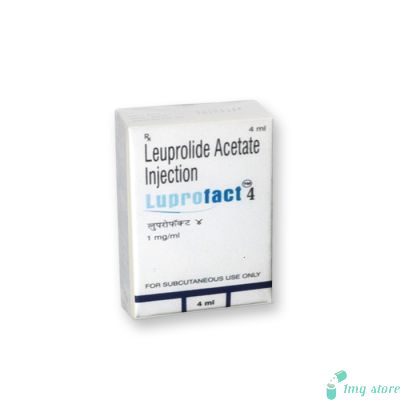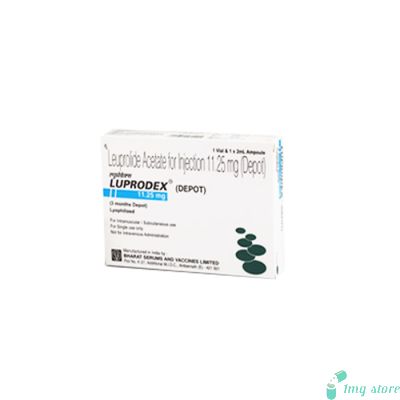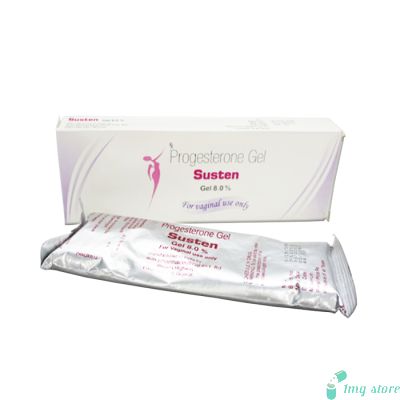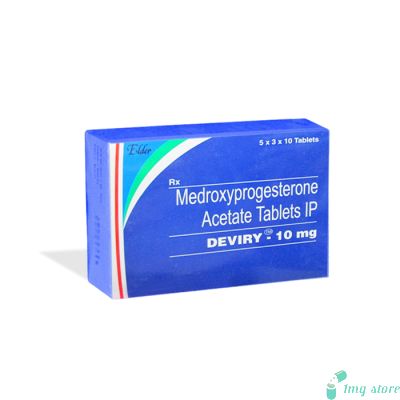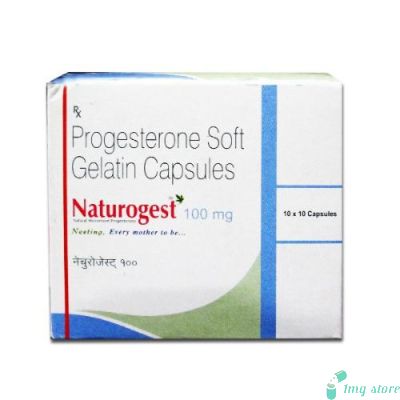Lupride Depot Injection (Leuprolide Acetate)
Lupride Depot Injection, also known as Leuprolide Acetate, is a medication commonly used in the field of reproductive health and oncology. It belongs to a class of drugs called gonadotropin-releasing hormone (GnRH) agonists.
Lupride Depot is primarily used to treat various conditions related to hormone imbalances, such as:
Prostate Cancer: It is frequently employed in the treatment of advanced prostate cancer in men. By suppressing the production of testosterone, it helps slow down the growth of cancer cells.
Endometriosis: Lupride Depot is used to manage endometriosis, a condition where the tissue lining the uterus grows outside of it. By reducing estrogen levels, it helps alleviate symptoms like pelvic pain and inflammation.
Uterine Fibroids: It is also prescribed to treat uterine fibroids, noncancerous growths that develop in the uterus. Lupride Depot helps shrink the fibroids and can relieve associated symptoms like heavy menstrual bleeding and pelvic pressure.
Precocious Puberty: In some cases, Lupride Depot is used to delay the onset of puberty in children who begin developing signs of puberty at an unusually early age.
Lupride Depot is typically administered as an intramuscular injection, usually into the buttock or thigh. The injection is usually given once every month or every three months, depending on the condition being treated. The dosage and frequency of administration may vary based on the specific medical condition and individual patient response.
Like any medication, Lupride Depot may cause side effects, which can include hot flashes, sweating, mood changes, decreased libido, fatigue, injection site reactions, and bone density loss. It is important to discuss potential risks and benefits with a healthcare professional before starting treatment.
It is crucial to follow the prescribed treatment plan and attend regular medical check-ups while receiving Lupride Depot to monitor the effectiveness of the medication and manage any potential side effects.
Here are some of the key advantages of Leuprolide Acetate:
Prostate Cancer Treatment: Leuprolide Acetate is highly effective in managing advanced prostate cancer. By suppressing the production of testosterone, it helps slow down the growth of cancer cells and can lead to a reduction in tumor size. It is often used as a palliative treatment to alleviate symptoms and improve the quality of life in men with prostate cancer.
Endometriosis Management: Leuprolide Acetate is beneficial in treating endometriosis, a condition where the tissue lining the uterus grows outside of it. By reducing estrogen levels, it helps shrink the endometrial tissue, alleviating symptoms such as pelvic pain, heavy menstrual bleeding, and infertility. It can provide relief and improve the overall well-being of individuals with endometriosis.
Uterine Fibroid Treatment: Leuprolide Acetate is also effective in managing uterine fibroids, noncancerous growths that develop in the uterus. It helps shrink the fibroids, reducing symptoms like heavy menstrual bleeding, pelvic pressure, and pain. This can improve a person's quality of life and potentially eliminate the need for surgical interventions.
Delaying Puberty in Precocious Puberty: Leuprolide Acetate is utilized to delay the onset of puberty in children who experience precocious puberty, a condition where puberty begins earlier than normal. By temporarily suppressing the release of sex hormones, it allows for more appropriate timing of puberty, ensuring better physical and emotional development.
It is important to note that Leuprolide Acetate is a prescription medication, and its use should be carefully supervised by a healthcare professional. While it offers significant benefits in managing various conditions, potential side effects and individual factors should be considered and discussed with a healthcare provider.
When using Lupron (Leuprolide Acetate), it is important to take certain precautions to ensure safe and effective use. Here are some precautions to consider:
Allergies: Inform your healthcare provider if you have any known allergies to Leuprolide Acetate or any other medications. This medication may contain inactive ingredients that can cause allergic reactions or other complications.
Medical History: Provide your complete medical history, including any previous or existing conditions, especially if you have a history of diabetes, heart disease, bone loss (osteoporosis), mood disorders, or seizures. These conditions may require special monitoring or adjustments to your treatment plan.
Pregnancy and Breastfeeding: Leuprolide Acetate may harm an unborn baby. Therefore, it is crucial to inform your healthcare provider if you are pregnant or planning to become pregnant. Additionally, it is recommended to avoid breastfeeding while using this medication, as it may pass into breast milk and harm the nursing baby.
Medications and Supplements: Inform your doctor about all the medications, including prescription, over-the-counter drugs, and herbal supplements, that you are currently taking. Some medications may interact with Leuprolide Acetate and affect its effectiveness or increase the risk of side effects.
Bone Health: Prolonged use of Leuprolide Acetate may lead to a decrease in bone mineral density, especially in women. Discuss with your healthcare provider about measures to monitor and manage bone health, such as calcium and vitamin D supplementation or bone density testing.
Side Effects: Be aware of the potential side effects associated with Leuprolide Acetate, such as hot flashes, mood changes, decreased libido, injection site reactions, and bone density loss. If you experience any concerning side effects, contact your healthcare provider promptly.
Regular Monitoring: Your healthcare provider may require regular check-ups and blood tests to monitor the effectiveness of the medication and assess any adverse effects.
Injection Site Care: If self-administering the injection, follow proper injection techniques and dispose of needles properly. Seek guidance from a healthcare professional on the correct administration method.
Always consult with your healthcare provider or pharmacist for specific precautions and recommendations based on your individual medical history and condition. They can provide personalized guidance to ensure safe and effective use of Leuprolide Acetate.
Leuprolide Acetate (Lupron) has several uses in the field of medicine. Here are some common uses of Leuprolide Acetate:
Prostate Cancer: Leuprolide Acetate is frequently used in the treatment of advanced prostate cancer in men. By suppressing the production of testosterone, it helps slow down the growth of cancer cells and can be used as part of a palliative treatment approach.
Endometriosis: Leuprolide Acetate is utilized in the management of endometriosis, a condition where the tissue lining the uterus grows outside of it. By reducing estrogen levels, it helps shrink the endometrial tissue, alleviate symptoms such as pelvic pain, and improve the overall quality of life.
Uterine Fibroids: Leuprolide Acetate is also prescribed to treat uterine fibroids, noncancerous growths that develop in the uterus. It helps shrink the fibroids, reduce symptoms like heavy menstrual bleeding and pelvic pressure, and may even prepare the uterus for surgical intervention.
Precocious Puberty: In some cases, Leuprolide Acetate is used to delay the onset of puberty in children who start showing signs of puberty too early. By temporarily suppressing the release of sex hormones, it allows for more appropriate timing of puberty and ensures better physical and emotional development.
Assisted Reproductive Technology (ART): Leuprolide Acetate may be used in assisted reproductive technology procedures, such as in vitro fertilization (IVF). It helps regulate hormone levels and optimize the timing of ovulation to enhance the success of these procedures.
It is important to note that the use of Leuprolide Acetate requires a prescription from a healthcare professional. The specific dosage, treatment duration, and frequency of administration may vary depending on the condition being treated and the individual patient's needs. Always consult with a healthcare provider for personalized information and guidance regarding the use of Leuprolide Acetate.
Here are some common side effects associated with Leuprolide Acetate:
Hot flashes: Many individuals using Leuprolide Acetate may experience hot flashes, characterized by sudden feelings of warmth, flushing, and sweating.
Mood changes: Some people may experience mood swings, including irritability, depression, or emotional instability, while using Leuprolide Acetate.
Decreased libido: Leuprolide Acetate can cause a decrease in sexual desire or libido.
Injection site reactions: Pain, redness, swelling, or irritation at the injection site may occur after receiving the Leuprolide Acetate injection.
Fatigue: Feelings of tiredness, weakness, or general fatigue can occur as a side effect of Leuprolide Acetate.
Headaches: Headaches, including migraines, have been reported by some individuals using Leuprolide Acetate.
Bone density loss: Prolonged use of Leuprolide Acetate may lead to a decrease in bone mineral density, potentially increasing the risk of osteoporosis or fractures.
It is important to note that not all individuals will experience these side effects, and the severity and duration of the side effects may vary. It is recommended to discuss any concerns or side effects with your healthcare provider, as they can provide guidance on managing or alleviating these symptoms.
Additionally, it is important to seek immediate medical attention if you experience any severe or persistent side effects that cause significant discomfort or distress.
This list does not include all possible side effects of Leuprolide Acetate. Consult with your healthcare provider or refer to the medication's package insert for a comprehensive list of potential side effects and further information.
Q: What is Leuprolide Acetate used for?
A: Leuprolide Acetate is used to treat conditions such as prostate cancer, endometriosis, uterine fibroids, and to delay puberty in children experiencing precocious puberty.
Q: How does Leuprolide Acetate work?
A: Leuprolide Acetate is a gonadotropin-releasing hormone (GnRH) agonist. It works by suppressing the production of certain hormones, such as testosterone or estrogen, which are involved in the growth and development of certain cancers or conditions.
Q: How is Leuprolide Acetate administered?
A: Leuprolide Acetate is typically administered as an intramuscular injection into the buttock or thigh. The injection is given once every month or every three months, depending on the condition being treated.
Q: What are the common side effects of Leuprolide Acetate?
A: Common side effects of Leuprolide Acetate may include hot flashes, sweating, mood changes, decreased libido, fatigue, injection site reactions, and bone density loss. It is important to discuss any side effects with your healthcare provider.
Q: Can Leuprolide Acetate be used during pregnancy?
A: Leuprolide Acetate may harm an unborn baby, and its use during pregnancy is generally not recommended. It is important to inform your healthcare provider if you are pregnant or planning to become pregnant.
Q: Can Leuprolide Acetate be used while breastfeeding?
A: Leuprolide Acetate may pass into breast milk and harm the nursing baby. Breastfeeding is usually not recommended while using this medication. Consult with your healthcare provider for appropriate guidance.
Q: Are there any drug interactions with Leuprolide Acetate?
A: Leuprolide Acetate may interact with other medications, including estrogen-containing medications, antiandrogens, and medications affecting liver enzymes. Inform your healthcare provider about all medications you are taking to avoid potential interactions.
Q: How long does it take for Leuprolide Acetate to work?
A: The time it takes for Leuprolide Acetate to work depends on the specific condition being treated. It is best to consult with your healthcare provider for information specific to your situation.
Q: Is Leuprolide Acetate a cure for cancer?
A: Leuprolide Acetate is not a cure for cancer, but it is used as part of the treatment to manage and slow down the growth of certain cancers, such as prostate cancer.
Here are some notable drug interactions associated with Leuprolide Acetate:
Estrogen-Containing Medications: Concurrent use of Leuprolide Acetate with estrogen-containing medications, such as hormone replacement therapy (HRT) or oral contraceptives, may diminish the therapeutic effects of Leuprolide Acetate. Your healthcare provider may adjust the dosage or change the treatment plan accordingly.
Antiandrogens: Combining Leuprolide Acetate with antiandrogen medications, such as bicalutamide or flutamide, used in the treatment of prostate cancer, may result in an enhanced suppression of testosterone levels. Your healthcare provider will monitor hormone levels and adjust the dosage as needed.
Gonadotropin-Releasing Hormone (GnRH) Antagonists: Concurrent use of GnRH antagonists with Leuprolide Acetate may increase the risk of adverse effects without providing additional therapeutic benefits. Therefore, it is generally not recommended to use them together.
Medications Affecting Liver Enzymes: Some medications that affect liver enzymes, such as ketoconazole or ritonavir, may alter the metabolism of Leuprolide Acetate. This can lead to changes in its effectiveness or potential side effects. Your healthcare provider may need to adjust the dosage or closely monitor your response to treatment.
Warfarin: Leuprolide Acetate may have an additive effect on blood thinning medications like warfarin, potentially increasing the risk of bleeding. Regular monitoring of blood clotting parameters is recommended if these medications are used concomitantly.
These are not all the possible drug interactions associated with Leuprolide Acetate. It is important to consult with your healthcare provider or pharmacist regarding specific medications you are taking to ensure there are no potential interactions. They can provide personalized advice based on your medical history and the specific medications involved.
| Manufacturer | : | Sun Pharmaceutical Industries Ltd |
| Equivalent Brand | : | Lupron |
| Generic Search | : | Leuprolide Acetate |








